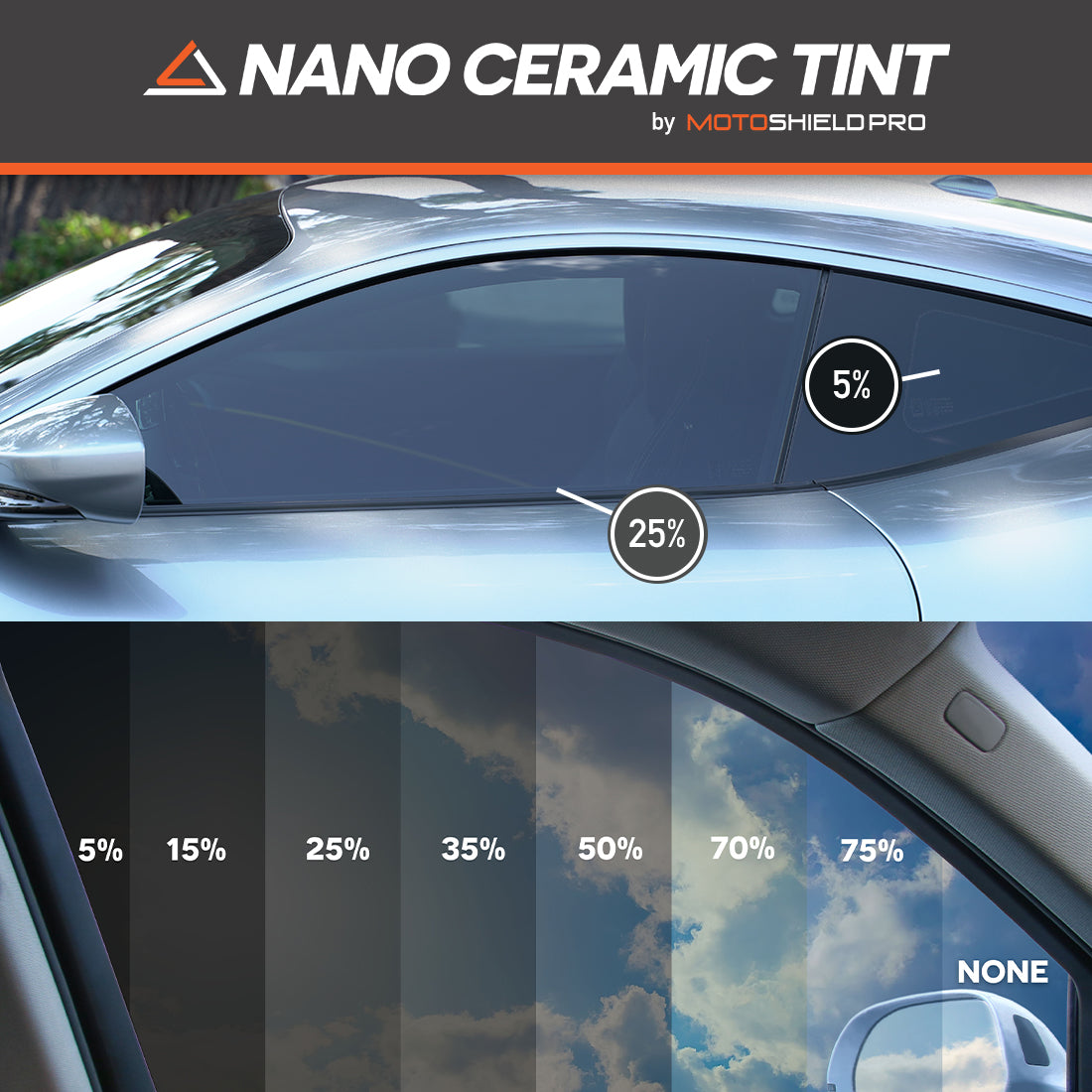AO Detail Window Tintingto Protect Your Vehicle’s Interior
AO Detail Window Tintingto Protect Your Vehicle’s Interior
Blog Article
Keep Cool and Comfortable: The Science Behind Window Tinting
Window tinting represents an advanced interaction of products scientific research and practical application, functioning mainly with a slim movie that modifies the means light interacts with glass. This technology is not merely an aesthetic option; it plays a vital duty in lowering solar warmth gain, decreasing glow, and giving significant UV protection. As we explore the various mechanisms and advantages connected with Window tinting, it becomes evident that its impact extends past convenience, affecting power usage and environmental sustainability. The question remains: what factors should one consider when selecting the perfect Window tint for their particular requirements?

Exactly How Window Tinting Functions
Window tinting operates through the application of a thin film to the glass surface area, which offers to change the way light communicates with the Window. This movie is commonly made up of polyester or other synthetic materials and is embedded with different dyes and metals that affect light transmission and representation. When light strikes the colored Window, a section of it is soaked up, while some is mirrored, and the rest goes through.

Furthermore, Window tinting can improve personal privacy and decrease glow, making spaces a lot more comfortable without jeopardizing presence. The effectiveness of Window tinting differs based upon elements such as the kind of film used, the angle of light occurrence, and the qualities of the glass. Understanding these principles is essential for choosing the ideal tint for particular demands and environments.
Benefits of UV Security
Among one of the most significant advantages of Window tinting is its capacity to provide effective UV security. Ultraviolet (UV) radiation from the sunlight is a well-documented reason of skin damages, including premature aging and a boosted threat of skin cancer cells (AO Detail Window Tinting). By incorporating Window tinting, individuals can substantially lower their direct exposure to hazardous UV rays, boosting their total health and well-being
Premium Window film can block up to 99% of UV radiation, creating a more secure atmosphere for passengers. Window tinting helps mitigate these results, maintaining the aesthetic appeal and honesty of interior areas.
On top of that, several Window film use a double benefit by lowering glare, which can enhance convenience and performance. Generally, the application of Window tinting serves as an aggressive measure to protect health and prolong the life of valued ownerships, making it a prudent financial investment for both household and industrial settings.
Temperature Level Regulation Devices
Efficient temperature level guideline is an essential advantage of Window tinting, as it adds to an extra comfortable interior environment. Window film are made to reflect, soak up, and transmit differing degrees of solar power, permitting for a controlled monitoring of warm getting in a space. This guideline is primarily accomplished via the optical homes of the color, which can block a considerable percentage of infrared radiation while permitting noticeable light to pass through.
By decreasing warmth gain throughout warmer months, Window tinting helps preserve a secure websites indoor temperature, lessening the reliance on cooling systems. Conversely, during chillier months, particular kinds of Window film can help keep see it here warmth within the structure. This dual functionality makes sure that owners experience consistent comfort despite outside climate condition.
Furthermore, Window tinting can reduce temperature changes brought on by straight sunshine, lowering the threat of warm spots near windows. Consequently, the overall indoor climate becomes much more balanced, improving resident fulfillment and efficiency. The scientific research behind these temperature level regulation systems shows the value of Window tinting as a functional option for enhancing living and functioning settings.
Enhancing Power Performance
Power efficiency is substantially improved with the application of Window tinting, additional building upon the advantages of temperature level guideline. By decreasing the amount of solar heat that enters a structure, Window tinting lessens the reliance on air conditioning systems, leading to reduced energy consumption. This not just adds to decreased utility costs however also decreases greenhouse gas exhausts related to energy manufacturing.
Along with heat decrease, Window tinting likewise aids preserve stable interior temperatures, which can reduce the work on furnace throughout chillier months. This twin benefit of regulating both warm gain and loss cause an extra effective total energy efficiency for industrial and residential properties alike.
In addition, Window tinting can safeguard home furnishings and interiors from unsafe UV rays, which can trigger fading and damage gradually. By maintaining the stability of indoor spaces, homeowner can minimize the frequency of repair services and replacements, even more boosting cost financial savings.
Inevitably, incorporating Window tinting as component of an energy-efficient approach not only enhances convenience but also advertises sustainability, making it a sensible investment for those wanting to improve their energy footprint.
Picking the Right Tint
Picking the appropriate Window tint is vital for making the most of the advantages of this improvement. The selection of tint can considerably affect power performance, aesthetics, and privacy. When thinking about Window tinting, it is necessary to review the various types of film available, including dyed, metalized, and ceramic options. Dyed film offer a fundamental level of warm reduction and privacy however may fade in time. Metalized film provide improved warm being rejected and enhanced sturdiness because of the reflective residential properties of metal layers. They may conflict with digital signals.
Ceramic Window film stand for a remarkable option, combining superb thermal insulation with reduced reflectivity, thus maintaining a clear sight. It is also essential to think about the legal laws relating to tint darkness in your location, as compliance is important to prevent penalties and make sure safety and security.
Furthermore, assessing your details requirements-- such as UV defense, glare decrease, and privacy-- will certainly guide your choice process. Consulting with a specialist installer can give beneficial understandings and recommendations customized to your situation. Eventually, the right Window color balances capability and aesthetic appeals, contributing to a comfortable and energy-efficient environment.
Final Thought

Window tinting represents a sophisticated interaction of materials scientific research and useful application, operating mostly through a slim film that modifies the way light connects with glass.Window tinting operates via the application of a thin movie to the glass surface, which offers to modify the method light interacts with the Window. By including Window tinting, individuals can dramatically decrease their direct exposure to hazardous UV rays, boosting their overall health and wellness and well-being.
Moreover, Window tinting can mitigate temperature variations caused by straight sunshine, decreasing the danger of warm places near windows. When taking into consideration Window tinting, it is important to assess the numerous types of film offered, consisting of colored, metalized, and ceramic options.
Report this page